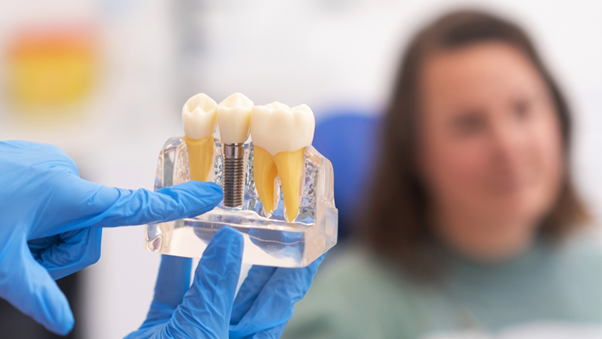Dental health plays a critical role in an individual’s overall well-being, influencing not only physical health but also emotional and psychological aspects. Among various dental treatments, dental implant surgery has gained immense popularity for its ability to restore function and aesthetics to patients with missing teeth. This article will delve into the benefits of dental implant surgery, offering insights into its impact on oral health, functionality, and quality of life.
Understanding Dental Implant Surgery
Dental implant surgery involves the placement of artificial tooth roots in the jawbone to support replacement teeth or bridges. These implants are typically made of titanium, a biocompatible material that integrates well with the bone, providing a sturdy foundation for artificial teeth. The procedure generally consists of several stages: the initial consultation, surgical placement of the implant, healing period, and placement of the final restoration.
Enhanced Aesthetic Appeal
One of the most significant advantages of dental implant surgery is the aesthetic improvement it offers. Missing teeth can significantly alter a person’s appearance, leading to a sunken facial structure and reduced self-confidence. Dental implants closely mimic the appearance of natural teeth, restoring the smile and facial harmony. This natural look and feel not only boost the patient’s self-esteem but also enhance their overall quality of life.
Improved Functionality
Beyond aesthetics, dental implant surgery provides improved functionality for patients. Traditional dentures can often lead to discomfort, difficulty chewing, and speech issues. In contrast, dental implants function like natural teeth, allowing for better biting and chewing efficiency. Patients can enjoy a wider variety of foods without the fear of their prosthetics slipping or causing pain. This restored functionality contributes to a healthier diet and improved overall health.
Long-Term Solution
Dental implant surgery is designed to be a long-lasting solution for tooth loss. With proper care and maintenance, implants can last a lifetime, making them a cost-effective option in the long run. Unlike traditional dentures or bridges, which may need to be replaced or adjusted over time, dental implants require minimal upkeep. Regular dental check-ups and good oral hygiene practices are typically sufficient to ensure their longevity.
Preservation of Jawbone Health
Another significant benefit of dental implant surgery is its positive impact on jawbone health. When a tooth is lost, the underlying jawbone can begin to deteriorate due to lack of stimulation. This bone loss can lead to further tooth loss and changes in facial structure. Dental implants, however, stimulate the jawbone similar to natural tooth roots, helping to maintain its density and structure. This preservation of bone health is crucial for overall oral health and can prevent complications associated with tooth loss.
Increased Comfort
Dental implants offer a level of comfort that is often unattainable with traditional dentures. Patients often experience discomfort or irritation with removable dentures, which can shift or slide during daily activities. Conversely, dental implants are securely anchored in the jawbone, eliminating the common issues associated with removable prosthetics. Patients report feeling more comfortable and confident when engaging in social interactions, eating, and speaking, ultimately enhancing their quality of life.
Minimal Impact on Adjacent Teeth
In contrast to traditional dental bridges, which require the alteration of adjacent healthy teeth, dental implant surgery does not compromise neighboring teeth. The procedure involves placing the implant directly into the jawbone without affecting the integrity of surrounding teeth. This aspect preserves natural tooth structure and contributes to better long-term oral health.
Personalization and Customization
Dental implant surgery is highly customizable, allowing for a tailored approach to each patient’s unique needs. Dentists can assess individual cases and develop a treatment plan that considers factors such as the type of implant, the number of teeth being replaced, and any specific health considerations. This personalization ensures optimal results, as each patient’s situation is unique, making tailored solutions essential for success.
Conclusion
Dental implant surgery represents a transformative solution for individuals facing tooth loss. With numerous benefits—including enhanced aesthetics, improved functionality, preservation of jawbone health, and increased comfort—implants offer a comprehensive approach to restoring smiles. Furthermore, the long-term durability and minimal impact on adjacent teeth highlight the advantages of choosing dental implants over traditional options. As advancements in dental technology continue to evolve, more patients will likely benefit from the life-changing effects of dental implant surgery, allowing them to enjoy healthier, happier lives with renewed confidence in their smiles.
In summary, dental implant surgery not only restores physical appearance but also significantly enhances overall quality of life, making it a vital consideration for anyone struggling with the consequences of missing teeth.




